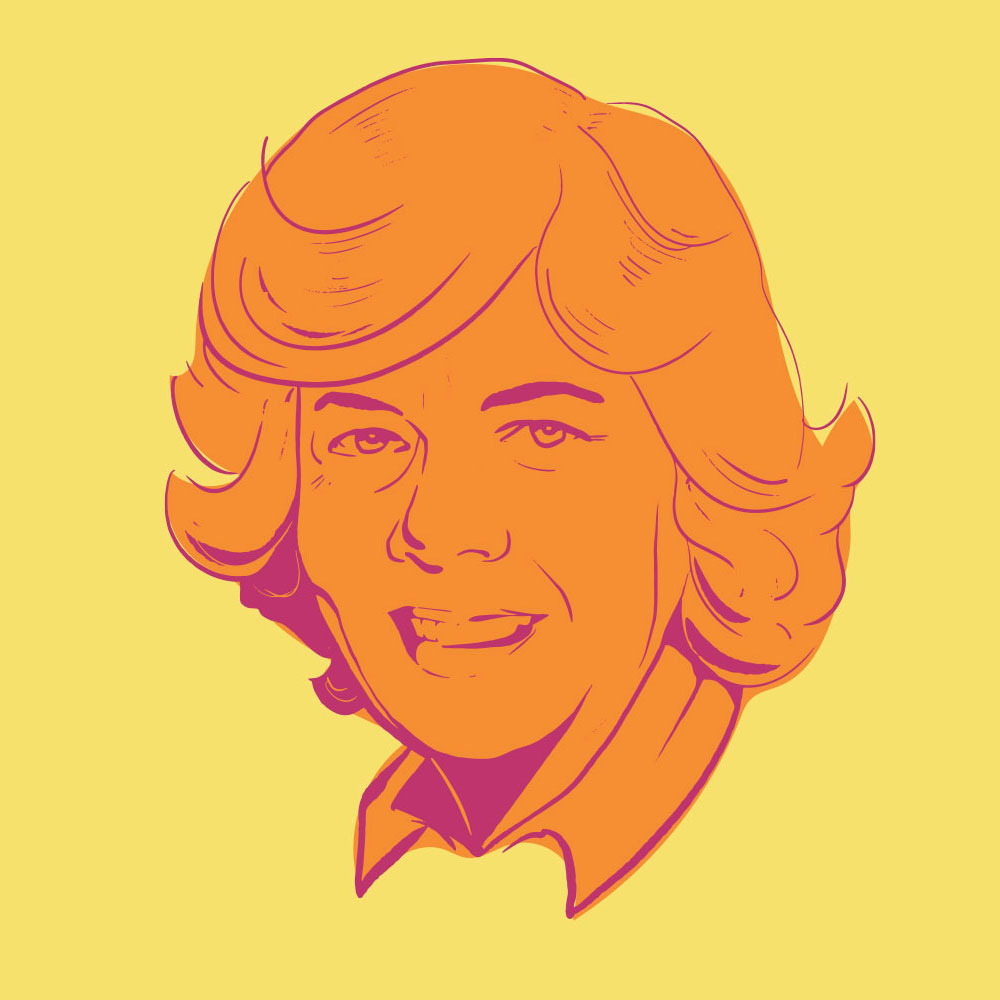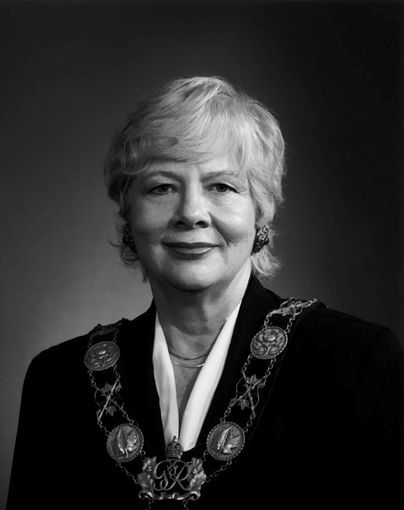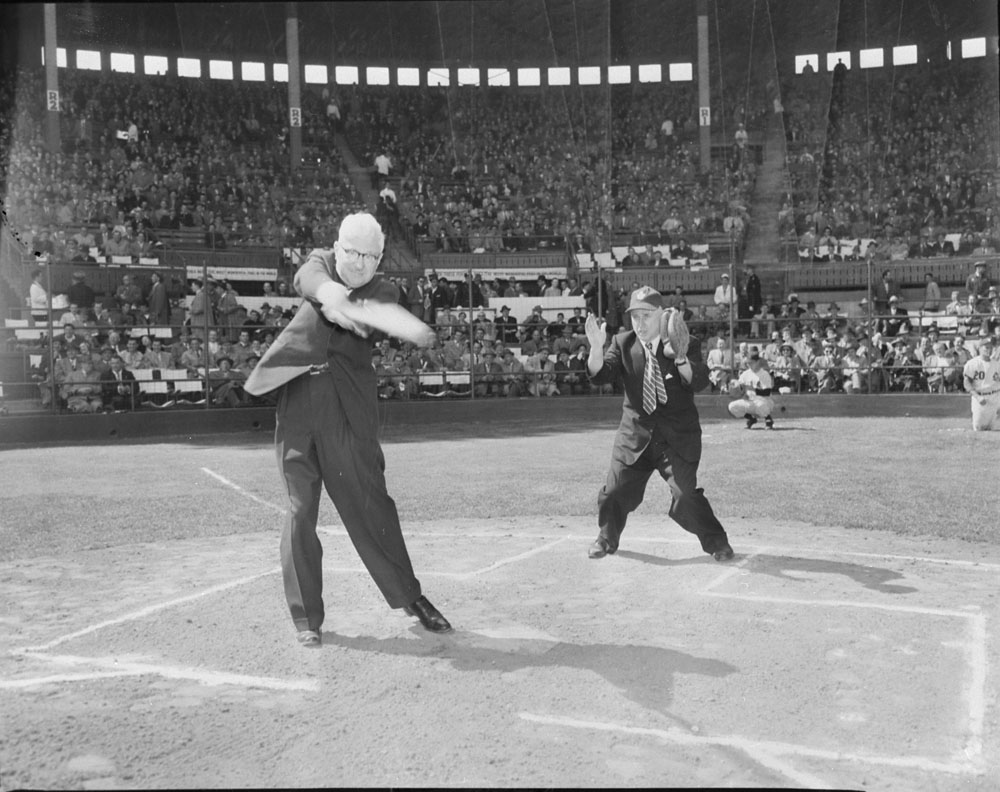June Rowlands (née Pendock), politician, mayor of Toronto (1991–94), administrator (born 14 May 1924 in Montreal, QC; died 21 December 2017 in Toronto, ON). June Rowlands was the first woman to hold the positions of TTC commissioner and chair of the Metropolitan Toronto Police Commission. In 1991, she became the first female mayor of the City of Toronto (pre-amalgamation) and served until 1994. Rowlands was a dedicated public servant, a passionate advocate for affordable housing and a tireless defender of Toronto's ravines and historic neighbourhoods. She made a lasting impact on the city's landscape and community. In 2025, the Museum of Toronto named Rowlands one of 52 women who shaped the city.
This article was created in collaboration with Museum of Toronto.

Early Life
June Pendock was born in Montreal and raised in Toronto. She graduated from Lawrence Park Collegiate and the University of Toronto. She met Henry Rowlands when she was working in customer service for Bell Canada. They were married in 1947 and had five children together: fraternal twins Doug and Joyce, a son, Murray, and identical twins Bruce and Alec. Rowlands was a long-time resident of the downtown Toronto neighbourhood of Cabbagetown.
Career in Politics
June Rowlands became involved in politically minded community groups in the 1950s. She served on the boards of the Association of Women Electors, the National Council on Welfare and the Central Mortgage and Housing Corporation. She was also president of the Family Service Association of Metropolitan Toronto and research director for the provincial Liberal caucus at Queen’s Park.
Rowlands started her career in municipal politics with her election to Toronto City Council in 1976. She represented Ward 10, covering Rosedale and Moore Park. As a Metro councillor in the early 1980s, she became the first woman to serve on the Toronto Transit Commission (TTC). She was also the city’s first female budget chief. Rowlands’ main priorities in politics were affordable housing, low property taxes, and the preservation of Toronto’s ravines and historic neighbourhoods. She also built a reputation as an advocate for the elderly, the poor, the disabled and victims of domestic violence.
“I’m like a dog with a bone. If I decide something is important, I go after it. I don’t think I’m stubborn. I will change my mind if there’s a better argument, but if I think this is the direction we should go, I keep pushing away, pushing away. I am tenacious.” — June Rowlands
A long-time centre-right Liberal, Rowlands ran for federal office as the Liberal candidate for York-Scarborough in the 1984 election. She lost to the Progressive Conservative candidate, Paul McCrossan.
Rowlands continued to serve on Metro Council and Toronto City Council until the municipal election in 1988, when she did not run for re-election. Instead, she was appointed chair of the Metropolitan Toronto Police Commission — the first woman to hold that role. She served on the commission until 1991, when she was replaced by Susan Eng.

Mayor of Toronto (1991–94)
In 1991, June Rowlands ran for mayor of Toronto in a crowded field of several right-leaning women and left-wing city councillor (and future federal NDP leader) Jack Layton. After the other female candidates dropped out, the right-wing vote coalesced behind Rowlands, who won 59 per cent of the vote compared to 33 per cent for Layton. Rowlands became Toronto’s 60th mayor and the first female mayor in the city’s history.
As mayor, Rowlands prioritized the environment, crime reduction, drug abuse prevention and the modernization of the city’s fire services. She also promoted Toronto as the economic engine of Canada. She called for the expansion of the Metro Toronto Convention Centre and for creating top-tier research centres in the city. She also played a prominent role in the Great Lakes and St. Lawrence Cities Initiative.
One of the most publicized aspects of Rowlands’ mayoralty was the public spat between her administration and the popular Toronto band Barenaked Ladies. Controversy erupted after the band was dropped from the city's 1991 New Year's Eve show at Nathan Phillips Square at the last minute because the band’s name “objectified women.” Rowlands asserted that she was not involved in the decision, which fell to the city’s Protocol Office. She stated that the band was not “banned permanently from playing at any city-sponsored events.” She also offered to present the band with a key to the city in September 1994, but the band refused to accept it. Lead singer Steven Page said the band wasn’t “holding a grudge” but also said, “I think it was a symbolic gesture of making up with the City of Toronto. I also see it as a symbolic gesture of the beginning of campaign season, and Mayor Rowlands doesn't have my vote.”
The banning of the Barenaked Ladies contributed to the perception that Rowlands was out of touch on key issues. This perception was also fed by her reputation as “the invisible mayor,” a label she received due to her avoidance of the spotlight. During her 1994 re-election campaign, her chief fundraiser, Ralph Lean, said, “Her economic management in tough times has been outstanding. She’s invisible because she’s sitting at her desk until 10 o’clock every night rather than attending a function.” However, her former campaign manager John Danson later conceded that Rowlands “was so tied to the economics and the books… she didn’t allow herself to get known. She didn’t lose touch with city hall; she lost touch with the human side.” This was perhaps exemplified by an incident just days before the 1994 election. Rowlands was unaware of a swarming riot on Yonge Street the day before and instead said that such incidents were “a thing of the past.”
In the election on 14 November 1994, Rowlands lost to Barbara Hall, who won 43.1 per cent of the vote compared to 36.1 for Rowlands. The 70-year-old Rowlands then retired from politics.
Honours
Following June Rowlands’ death on 21 December 2017 at the age of 93, municipal flags in Toronto were flown at half-mast for a week. Toronto mayor John Tory stated, “We are greatly saddened by the death of June Rowlands, who blazed a trail through our city’s politics and was one of Toronto’s greatest supporters and champions. We are thankful for June’s service to our city and her ability to get things done. I know that she will be greatly missed.”
In 2004, Davisville Park was renamed June Rowlands Park by the City of Toronto in her honour. In 2025, the Museum of Toronto named Rowlands one of 52 women who shaped the city.

 Share on Facebook
Share on Facebook Share on X
Share on X Share by Email
Share by Email Share on Google Classroom
Share on Google Classroom



